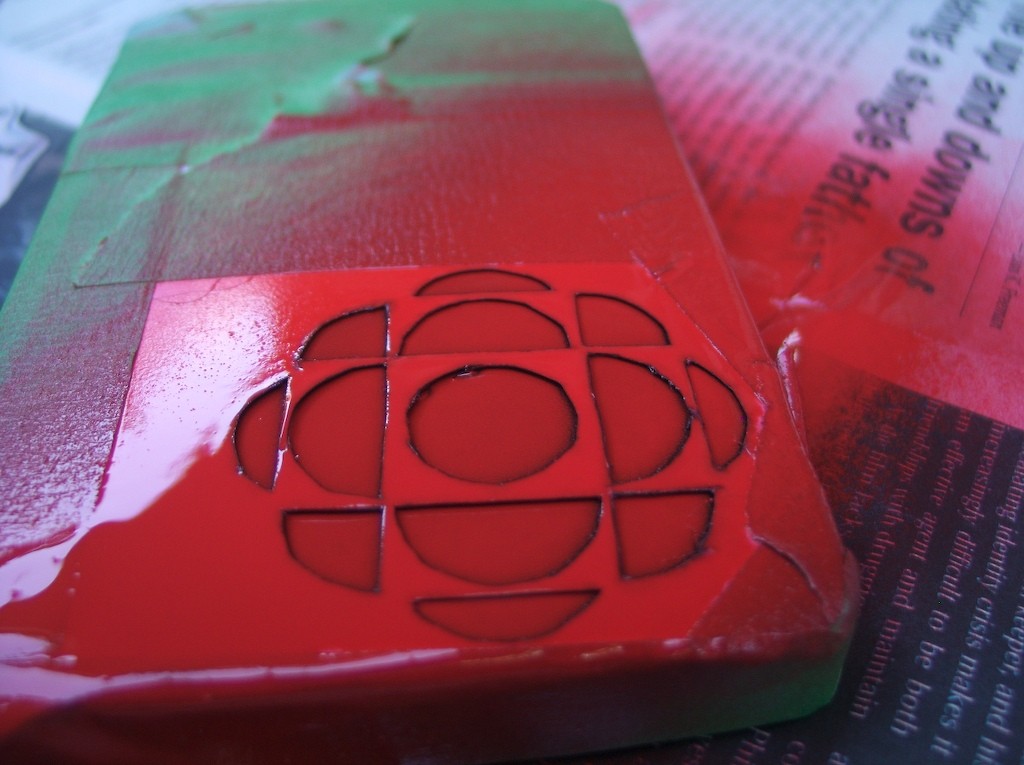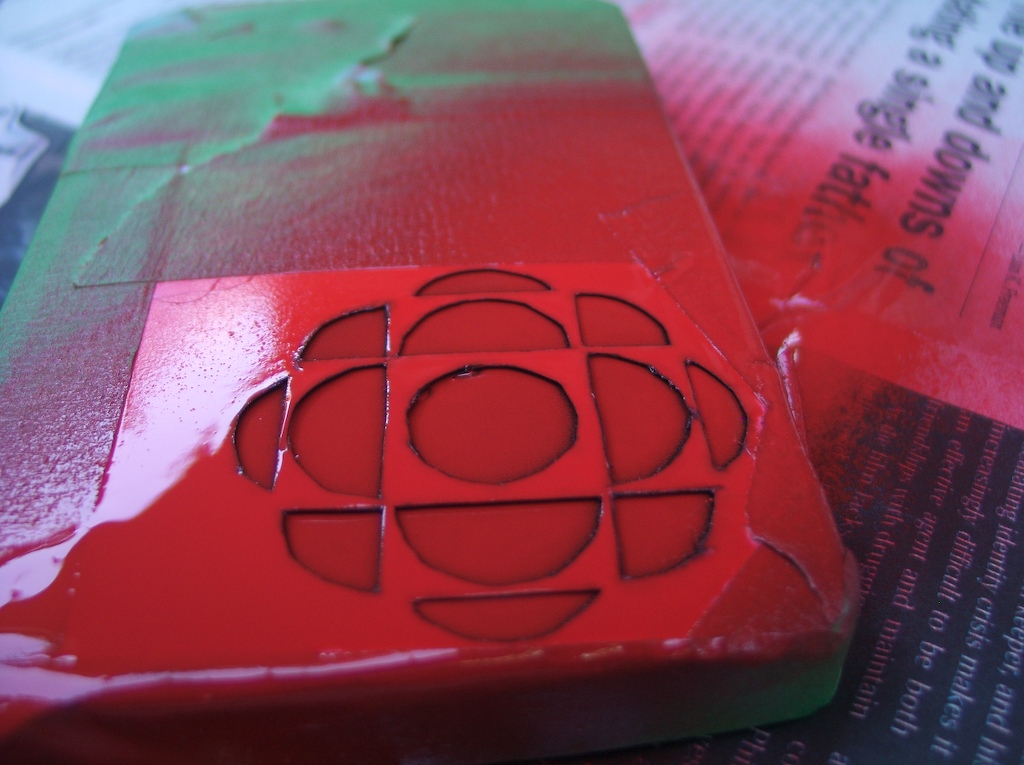By Valerie Franklin (The Cascade) – Email

“You won’t recognize Canada when I’m through with it.”
— Stephen Harper, 2006
Ask any Canadian for a list of 10 Canadian symbols and they’re likely to list the CBC somewhere just below maple syrup and beavers. What could be more fundamentally Canadian than Hockey Night in Canada, which has been broadcast since 1952? Who doesn’t love the snappy political satire of This Hour Has 22 Minutes? But two weeks ago it was announced that the CBC will sell all its property and real estate across Canada in a fire sale, suggesting that it’s edging closer to bankruptcy — the latest step in a long series of downhill slides under the Conservative government.
If the CBC is destroyed, it will not have been an explosive demolition so much as a slow, deliberate, and systematic dismantling. In 2011, the Conservative government under prime minister Stephen Harper announced $115 million in cuts to the CBC over three years. Since then, two of the CBC’s 10 remote recording trucks have been quietly sold; its most experienced senior producers have been dismissed; all its regional offices have been closed; and its irreplaceable music archives, comprising over 100,000 recordings on vinyl and cassette, have been sold or destroyed. The recent decision to sell its real estate is the culmination of this dismantling — a new high-water mark for the destabilization of the fourth estate in Canada. If the sale goes through, the CBC will become a tenant rather than an owner. Its permanence as a Canadian institution will no longer be a certainty.
The demographic of CBC listeners is generally a little older than your average university student, and chances are you’re not one of the die-hard fans with the kitchen radio permanently tuned to Radio 2. But even if you don’t listen to it often, the CBC should be appreciated not only as one of Canada’s foremost producers and supporters of Canadian content, but as a mainstay of our national culture. The corporation’s mandate, set out in the Broadcasting Act of 1991, lays out seven specific points, including that the corporation must “actively contribute to the flow and exchange of cultural expression,” as well as “contribute to shared national consciousness and identity.” Originally founded in 1936, a time of uncertainty, division, and economic hardship, the CBC’s broadcasts were intended to unify Canada’s scattered and diverse population across almost 10 million square km of rugged land, creating what political scientist Benedict Anderson would later famously term “imagined community”: a sense of kinship among people who share few other cultural similarities or face-to-face interactions to bind them together. In doing so, the CBC became a symbol embedded in the national consciousness of Canada. If we lose this symbol, which seems more and more likely with the significant destabilization this fire sale represents, we lose more than Canada’s most prominent source of journalism and culture — we lose an essential piece of our national puzzle.
Disturbingly, the cause of this gradual dismantling appears to be politically motivated. The idea of public broadcasting is based on the idea that access to information is essential to democracy, and that in order to maintain unbiased coverage that is free of political or economic influences, broadcast institutions must be publicly funded. The CBC operates autonomously from the government — yet out of 11 directors on the CBC’s board, nine were appointed by Harper himself. Many critics have voiced frustration with the decreasing quality of the CBC’s programming over the last several years, but is this decline really coincidental, considering that the left-leaning journalism that the CBC is known for conflicts with the current Conservative government’s politics? Is the intention of this Harper-appointed board to run the CBC into the ground, weakening the quality of its content until, when it finally collapses, no one cares?
There’s still hope for the CBC; Tom Mulcair has penned a letter urging them not to sell their real estate in the hopes that an NDP government could restabilize the corporation, and both he and Liberal leader Justin Trudeau have pledged to reverse the $115 million of funding cuts if either of their parties is elected. But if the latest polls are correct and the Conservative government is poised for re-election, it seems unlikely that the CBC will survive the next four years.
Protests have not helped. Petitions have not helped. If you care what happens to the CBC either way — whether it should be quietly retired as an antique of days gone by, or whether it should be preserved as a precious artifact of Canadian culture — vote.
Read Alex Rake’s feature on strategic voting here.


